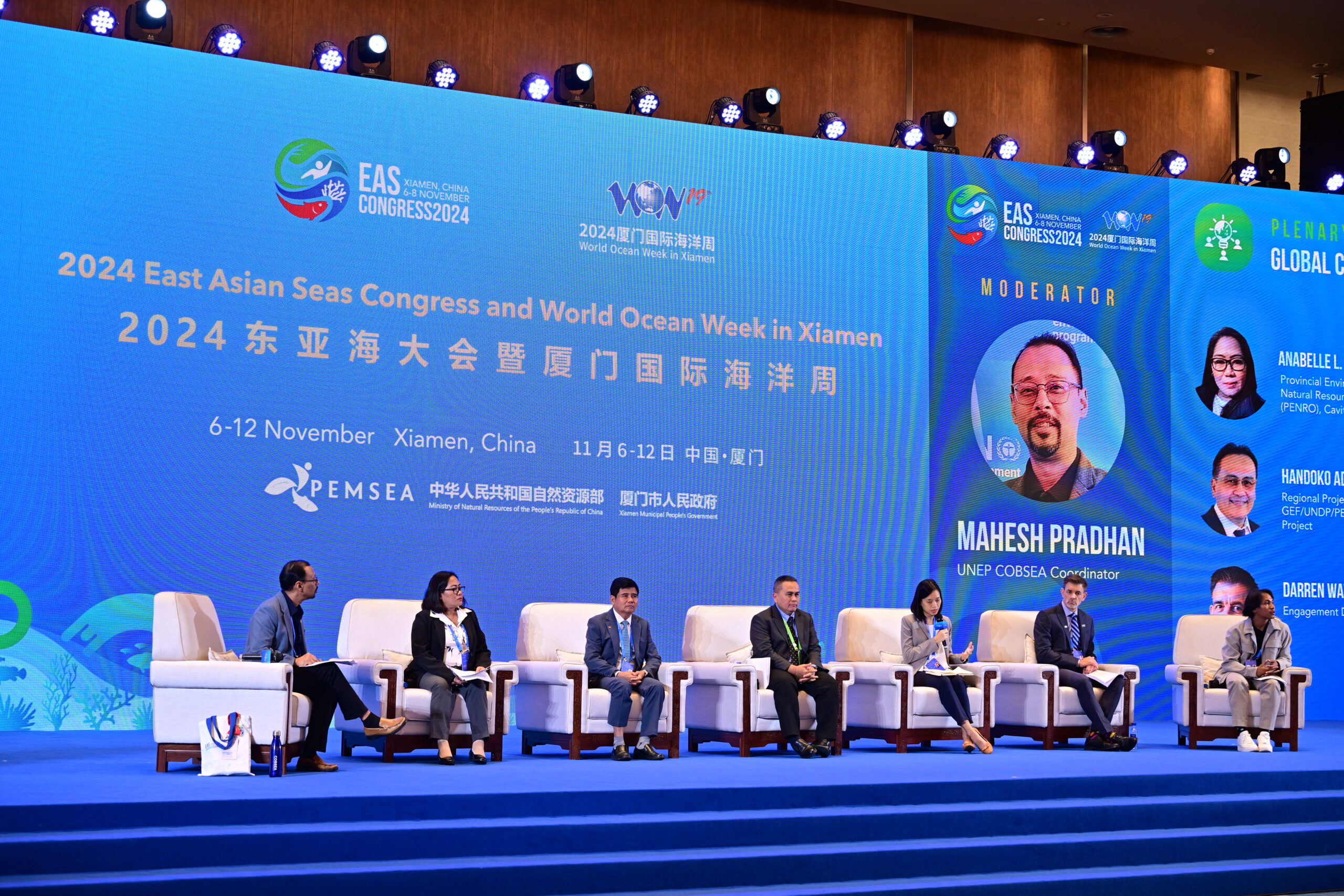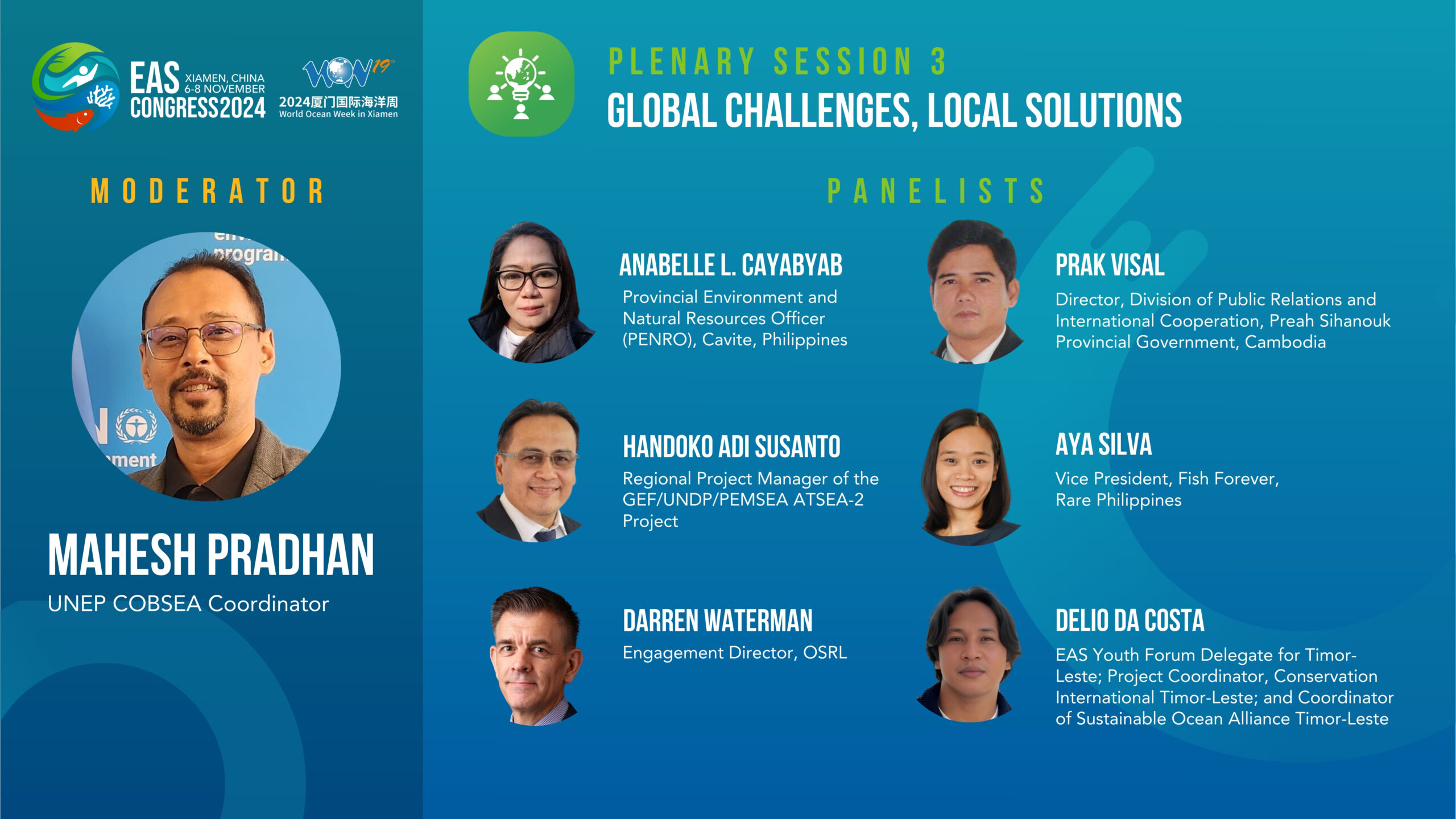
The panel for the third EAS Congress Plenary Session was moderated by UNEP COBSEA Coordinator Mahesh Pradhan and included voices from nonprofits, government officials, technical experts and the youth. (PRF)
“To amplify local voices and scale-up local actions, we need to further strengthen and capacitate both the PNLG and PNLC, especially the linkages between the two,” said Ms. Anabelle Cayabyab, Provincial Environment and Natural Resources Officer, Office of the Provincial Environment and Natural Resources (OPENRO), Cavite, Philippines, during the third EAS Congress plenary session on Global Challenges, Local Solutions on 7 November 2024.
Many global initiatives like the UN Convention on Biological Diversity, UNFCCC COP-29, and the UN Conference on Oceans aim to address biodiversity, climate change and ocean health.
However, the success of these efforts depends on their enforcement and implementation at the national, and specifically, local levels. Coastal communities are on the frontlines of challenges affecting the marine environment. They have the most at stake if they do not act to protect their food sources, security and communities and therefore play a crucial role in implementing national and global plans to safeguard the oceans amid climate change impacts.
Panelists from various backgrounds (i.e. local governments, regional cooperation, NGOs, the private sector and youth organizations) shared the various sectors’ shared success stories, challenges and strategies to scale up local actions that contribute to global goals, while scaling up and leveraging local initiatives.
“It’s important to meet these environmental objectives, but it’s also crucial to ensure human well-being. For example, when working with fishers, who are often among the most vulnerable, we should consider their economic resilience. By providing economic ‘safety-nets’ and insurance, we can improve their compliance with fishing regulations and prevent overfishing,” said Aya Silva, Vice President, Fish Forever, Rare Philippines.
This alone makes the session align well with Action 10 of the Xiamen Ministerial Declaration by integrating blue food and health in the ICM framework as a pathway to a blue economy, as a way to address SDG 2 or Zero Hunger, SDG 3 or Good Health and Well-being and SDG 14 or Life Below the Water.
Despite many limitations, local communities are key actors with much to offer in contributing to global goals. Other entities, such as local governments, regional organizations, NGOs, the private sector, and youth groups, can help empower these communities to play an active role in achieving these goals.

The moderator and speakers for the third plenary session on Global Challenges, Local Solutions. (PRF)
